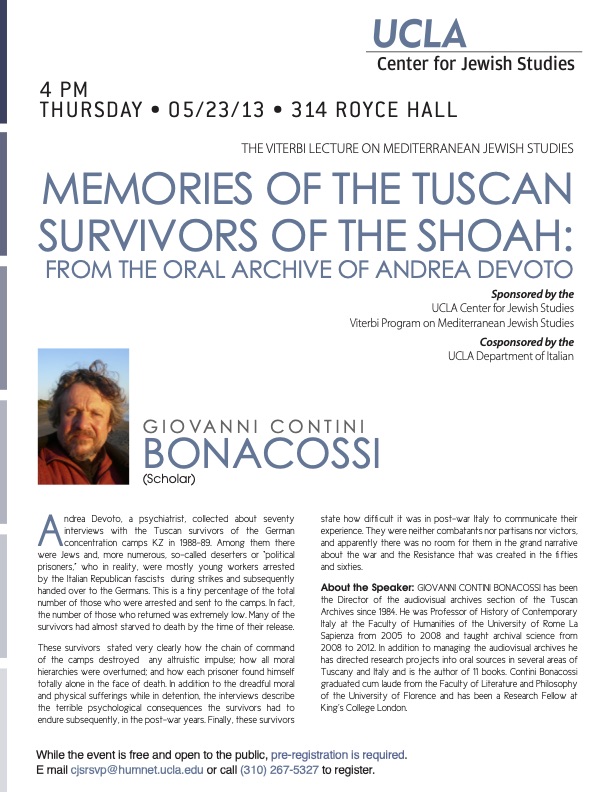
Andrea Devoto, a psychiatrist, collected about seventy interviews with the Tuscan survivors of the German concentration camps KZ in 1988-89. Among them there were Jews and, more numerous, so-called deserters or “political prisoners,” who in reality, were mostly young workers arrested by the Italian Republican fascists during strikes and subsequently handed over to the Germans. This is a tiny percentage of the total number of those who were arrested and sent to the camps. In fact, the number of those who returned was extremely low. Many of the survivors had almost starved to death by the time of their release.
These survivors stated very clearly how the chain of command of the camps destroyed any altruistic impulse; how all moral hierarchies were overturned; and how each prisoner found himself totally alone in the face of death. In addition to the dreadful moral and physical sufferings while in detention, the interviews describe the terrible psychological consequences the survivors had to endure subsequently, in the post-war years. Finally, these survivors state how difficult it was in post-war Italy to communicate their experience. They were neither combatants nor partisans nor victors, and apparently there was no room for them in the grand narrative about the war and the Resistance that was created in the fifties and sixties.
About the Speaker: GIOVANNI CONTINI BONACOSSI has been the Director of the audiovisual archives section of the Tuscan Archives since 1984. He was Professor of History of Contemporary Italy at the Faculty of Humanities of the University of Rome La Sapienza from 2005 to 2008 and taught archival science from 2008 to 2012. In addition to managing the audiovisual archives he has directed research projects into oral sources in several areas of Tuscany and Italy and is the author of 11 books. Contini Bonacossi graduated cum laude from the Faculty of Literature and Philosophy of the University of Florence and has been a Research Fellow at King’s College London.